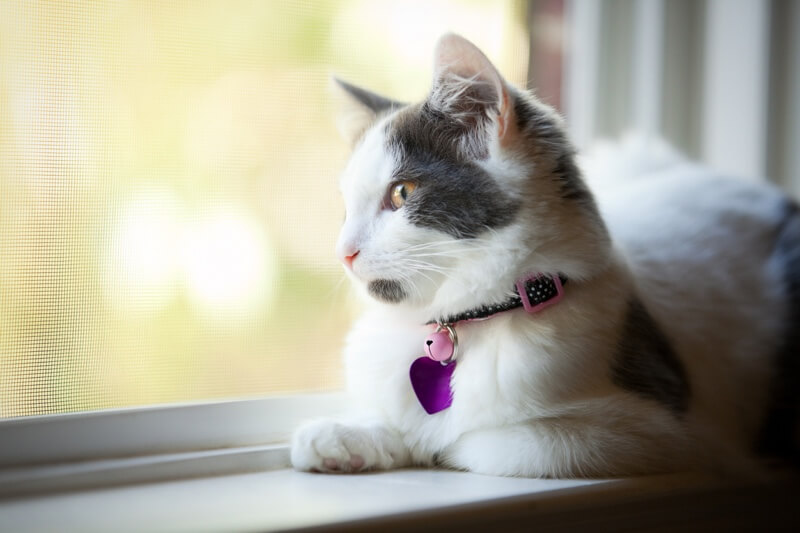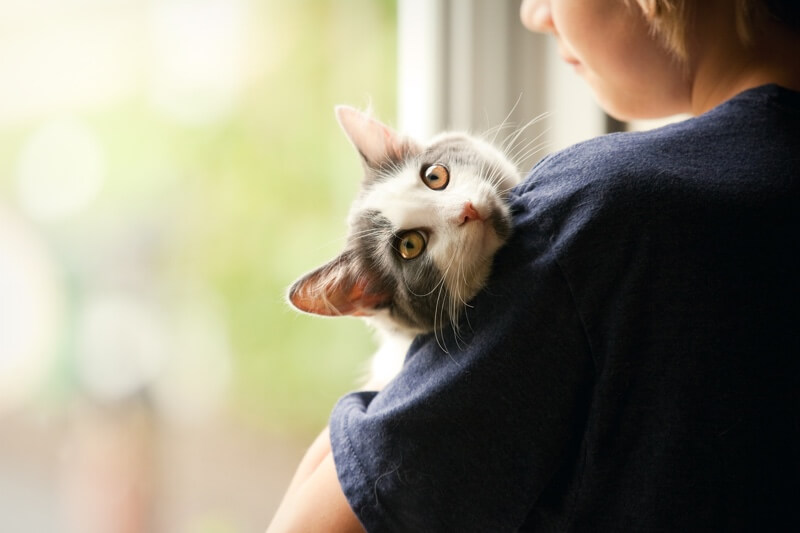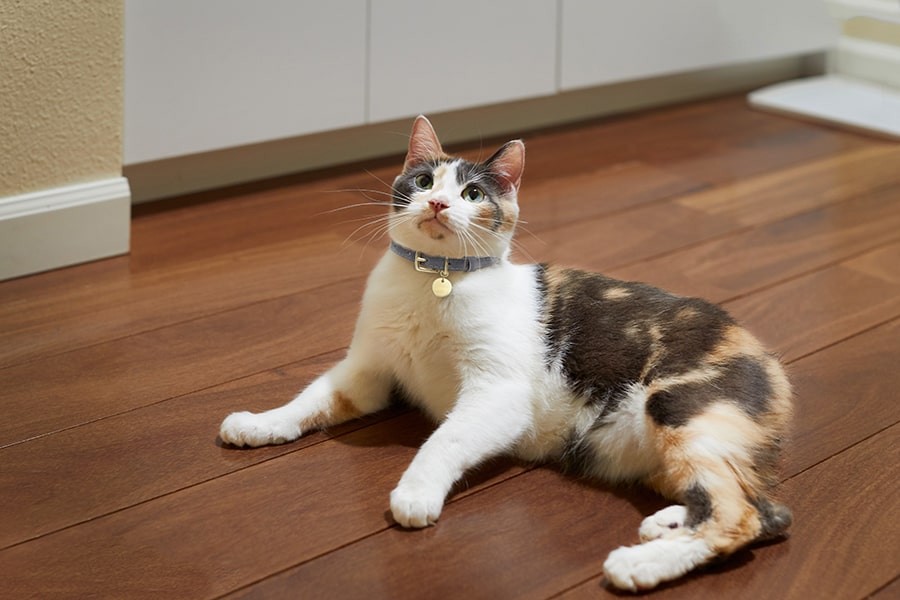
While cats are famous for their ability to land on all fours from all sorts of heights, this isn’t always the case. Cats who fall from steep heights can suffer serious injuries. It also happens so often that it has been given its own name: high-rise syndrome.
What Is High-Rise Syndrome?
High-rise syndrome refers to the injuries that cats can sustain when they fall from a steep height, such as an interior second-floor landing or balcony, out a window, down a fire escape, or when they miss a jump from a landing to a higher architectural feature like a ledge or window. Cases of high-rise syndrome tend to spike during warm weather months when windows tend to be open and outdoor spaces like terraces are in use more often.
How Does High-Rise Syndrome Happen?
Cats love to sit up high in windowsills and watch the birds or bask in the warm sun. If they push on a loose screen or if the window is open too far, they can fall out. They can also be tempted to lunge after a bird that comes too close or get startled by a vacuum or other loud noise in the house and take a tumble.
Like windows, balconies, terraces, and fire escapes pose a risk for this kind of accident. Lots of cats love spending time in these places to enjoy some fresh air. If they get up on a railing or slip through a gap in the ironwork, they can end up falling to the ground.
Cats can also fall from a high perch while they are sleeping. Like people, they go into a phase of deep or REM sleep where they might dream about chasing mice or other cat activities. These dreams can cause them to move around and fall from wherever they were resting. Additionally, they could wake up from a dream feeling disoriented and lose their balance.

What Should I Do if It Happens to My Cat?
If your cat falls from a steep height, you should go to the veterinarian as soon as possible. This holds true even if you’re not sure how badly your cat is hurt. While you may be able to notice a broken bone or laceration, you won’t be able to see internal injuries like fractured ribs or vertebrae.
Your veterinarian will conduct a full physical exam and may order X-rays, an MRI, or other diagnostic tests to evaluate your cat’s condition. Some of the most common injuries that can occur in a bad fall include:
- Shattered jaw
- Broken limbs or pelvis
- Fractured teeth or palate
- Punctured lungs
- Spinal fractures
- Ruptured bladder
Your cat’s treatment will depend on the type and severity of the injuries. It can include medication to control pain, hospitalization, and surgery to set broken bones or repair other damage.
Many cats will survive a fall, but it can be a long, painful, and expensive road to recovery, especially in the case of severe injuries. An ASPCA Pet Health Insurance plan can help you manage the costs and provide your cat with the best care possible.
What if I Only Live One or Two Stories Up?
You still need to be mindful of high-rise syndrome even if you live closer to the ground. In fact, you might be surprised to hear that cats who fall from one or two flights up can suffer more extensive injuries than cats who fall from greater heights.
Cats who fall from higher up tend to become less rigid and assume a horizontal position as they fall. This helps distribute the force of the landing across their body and potentially decrease the number and severity of their injuries. Cats who fall from a shorter height tend to stay rigid and don’t have time to adjust their posture.

How Can I Prevent High-Rise Syndrome?
High-rise syndrome can be prevented with a little knowledge and planning. Here are some things to look out for as well as tips to help ensure it doesn’t happen to your cat:
- Always supervise your cat on a balcony or terrace. Don’t let them out there by themselves and bring them in when you go inside.
- Check all window screens in the house to make sure they are properly installed and secure. Cats can fall through if they lean up against a loose screen.
- Consider putting screens in windows that don’t currently have them. If that’s not possible, keep those windows closed.
- Avoid opening windows without screens. And remember cats have a way of getting through tight spaces, especially when something grabs their attention. Even if you only open the window a few inches, your cat could still slip out and fall.
- Cats can also get out through ironwork, bars, or wood slats on balconies or terraces that have large gaps. You can cover these gaps with deck netting or wire mesh to help keep your cat safe.
- Place patio chairs, couches, and tables far enough away from terrace or balcony railings so your cat can’t use them to climb up and accidentally fall off.
- Don’t rely on childproof window guards since cats can slip through them.
- Close all windows before playing games like fetch or chase with your cat. Your feline friend might be so focused on the game that they don’t notice an open window and fall right out.
- Spay or neuter your cat so they won’t be tempted to escape through an open window or other high spots to search for a mate.
Also, remember that all cats should be kept indoors. This helps protect them from all sorts of accidents, fights with other animals, contagious diseases, and parasites, like heartworms.
Are Dogs Affected by High-Rise Syndrome?
High-rise syndrome is less common for dogs than cats. Dogs typically prefer to keep their feet on the ground rather than perching up high like their feline counterparts. However, dogs can still get into precarious situations and fall out of windows or off of terraces and balconies.
When dogs fall from a steep height, they can suffer the same types of injuries as cats. There might be some differences because of the size of dogs in relation to cats, but they can fracture ribs, break limbs, and injure internal organs. As with cats, you should take your dog to the veterinarian after a bad fall.

Can Pet Insurance Cover High-Rise Syndrome?
An ASPCA Pet Health Insurance plan can cover treatments for injuries sustained in a fall as well as all sorts of other accidents and common illnesses. If your cat isn’t covered, you can get started now with a free quote.
Helpful resources for pet parents
Browse categories
-

What Is My Pet Trying to Say?
Pets can’t talk to us, but they have other ways of communicating.
-

Manx Cat Facts
Manx cats are not only friendly and playful, but they can also get along with kids, dogs, and other cats—what’s not to love?
-

Beginner’s Guide for Using Pet Insurance
Are you new to the pet insurance world? Learn all about common insurance terms, and the process of finding the right plan for your pet and budget.

Browse Categories
(opens new window)
